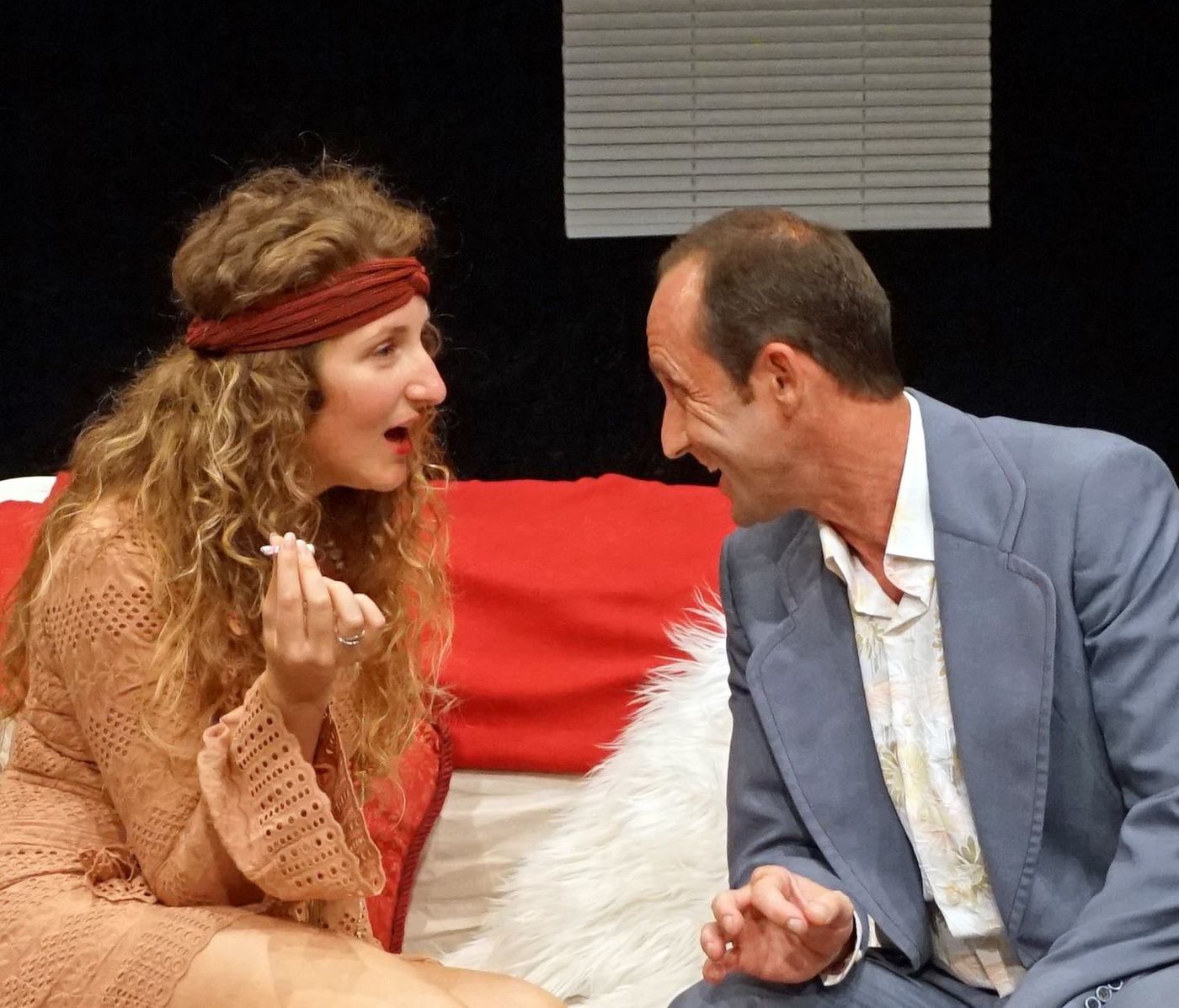Review: THE LAST OF THE RED HOT LOVERS at the Bakehouse Theatre
 Reviewed by Ewart Shaw, Thursday January 24th 2019.
Reviewed by Ewart Shaw, Thursday January 24th 2019.
You don't have to be Jewish to enjoy the plays of Neil Simon, or a New Yorker, though his deliberations on human life are couched in that particular dialect. The Last of the Red Hot Lovers is presented by STARC Productions, performers, Stefanie Rossi and Marc Clement, and director, Tony Knight, who have brought a series of excellently crafted two-handers to the Bakehouse, and this production continues their impressive theatrical trajectory.
Barney Cashman, a 47 year old restaurateur, owner-manager of the Queen of the Seas, is married to his childhood sweetheart, Thelma, and is having his midlife crisis, in three encounters, in his mother's stylish apartment, which is only available between three and five some afternoons, while she's off being a volunteer at a local hospital. While the play is fifty years old, the sexual politics are still cogent. His first attempt brings him Elaine, a regular client at his restaurant, whose husband is violently jealous, his second Bobbi, a delusional would-be star of Broadway musicals, and the third, Jeanette, his wife's best friend and the wife, herself, of his best friend. No prizes for guessing that not one of these encounters works out as he intended.
Marc Clement, is a gifted comic performer, catching all of Barney's nervousness, and learning something important through each encounter.
When first produced each of these women was portrayed by a separate performer, but now the challenge is given to one woman to incarnate all three. Stefanie Rossi is outstanding as each of them. Her Elaine is a woman who wants excitement, a cougar in the making, with subtle flashes of animal print fabrics in her costume. She takes charge of the action, swallowing scotch, desperate for the oral gratification of a cigarette, and Barney is so far out his depth, waiting for someone to throw him a lifeline, or the line to another life.
Bobbi is tragic, delusional, paranoid, on the run from a mental home, with dreams of making it big on Broadway or the TV variety shows popular then. Barney knows he can't take advantage of this pathetic creature but does explore the new world by smoking dope with her. The brown, lacy macramé number Bobbi's wearing is a real find. Rossi also can sing, and the songs of Burt Bacharach and Hal David, the soundtrack to the period, add so much to the atmosphere.
The final encounter is with Jeanette. Rossi arrives clutching her pocketbook like a shield, nervous and as desperate as Barney to find some way out of her marital dilemma. Her controlling husband has separated her from a dear friend only to admit, in the middle of the night, that he's having an affair with her. Jeanette wanted to take revenge on him by doing the same.
Here, I want to share a joke I was told by a Jewish friend in Sydney. A Jewish couple, wealthy and successful, are at an important reception. A beautifully dressed younger woman comes over to the husband and kisses him passionately.
"Who was that?", asks the wife. The husband confesses that the woman is his mistress. Minutes later another beautiful woman enters, sees the husband, and blows him a kiss.
"And who is that?", asks the wife. "That's Harry's mistress". "Ah", says the wife, "ours is better".
I said you don't have to be Jewish to appreciate the play, but there is one moment, in the last of the three, when Jeanette challenges Barney to name three decent people. He flounders a bit and then comes up with Thelma, his wife, John F Kennedy and, surprise, Jesus Christ. When God decides to destroy Sodom, Abraham bargains with Him for the city's survival, Genesis 18:32. Will you destroy it if there are fifty good men who would die? Ten good men? There weren't ten so God destroyed Sodom, and Gomorrah for good measure. That questioning about the nature of good and evil, or, in Simon's word, decency, underlies the play. Moral responsibility within our relationships, married or otherwise, is still an important issue, and Simon is taking advantage of an interesting physiological effect. Laughter pushes oxygen through the brain, making us momentarily more receptive to the message.
Lit and managed by Stephen Dean, this is a very good looking and very successful piece of theatre.
I saw it on the hottest night in Adelaide, which brought a few extra laughs when Bobbi made her entrance complaining of the heat and welcoming the air-conditioning.
[Editor's note: The play opened on the hottest day in Adelaide's recorded history, the temperature reaching 46.6C, or 115.9F.]
Reader Reviews
Videos
